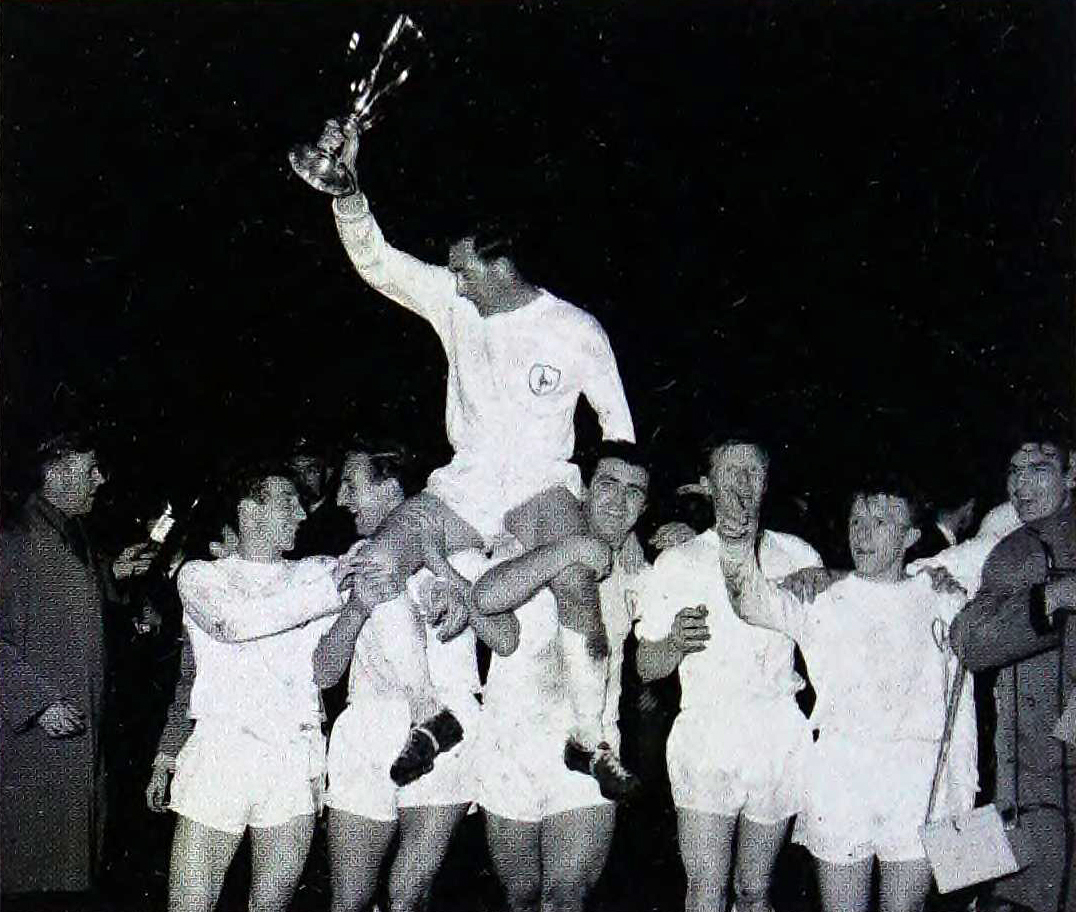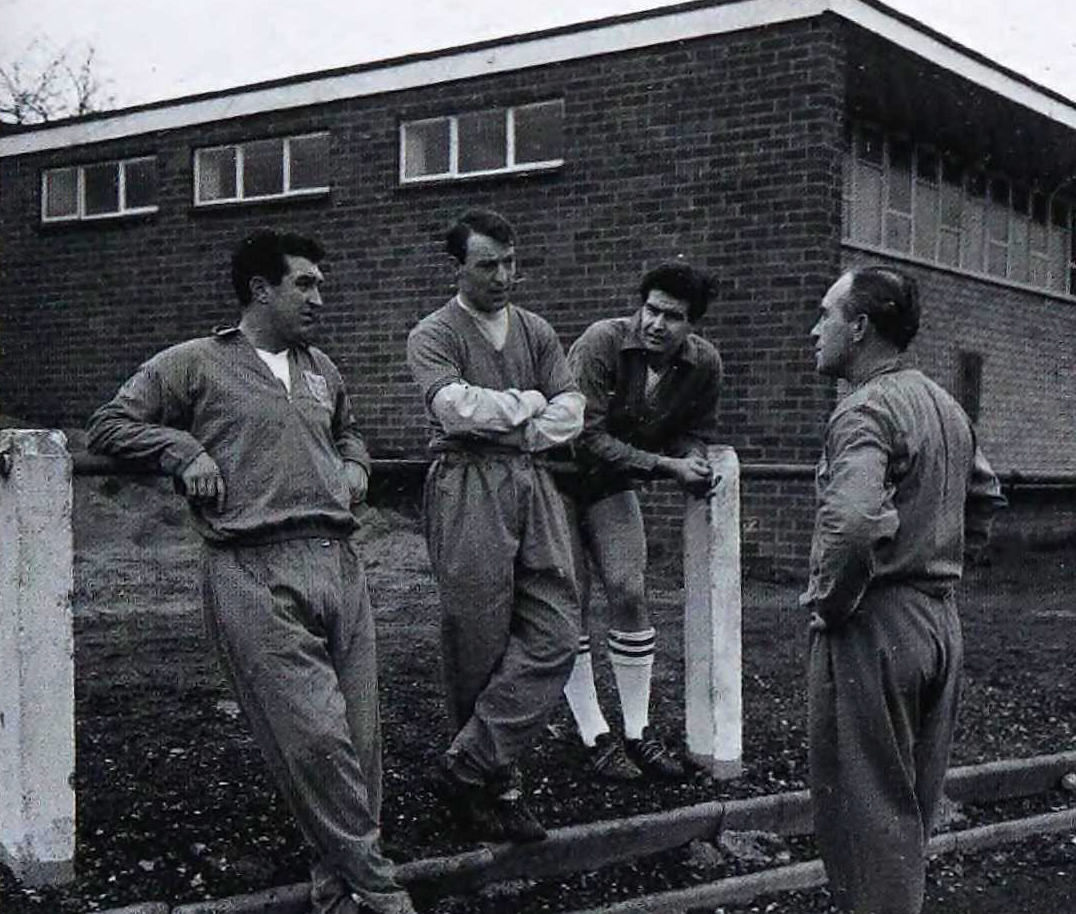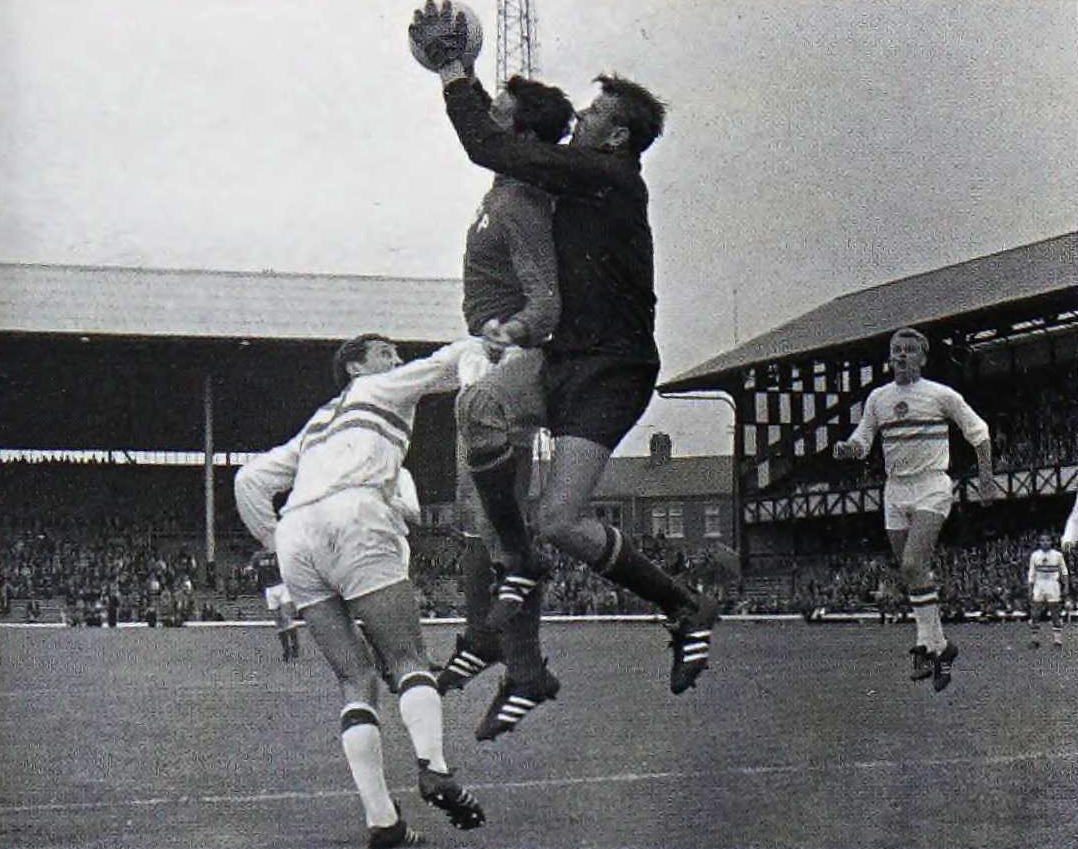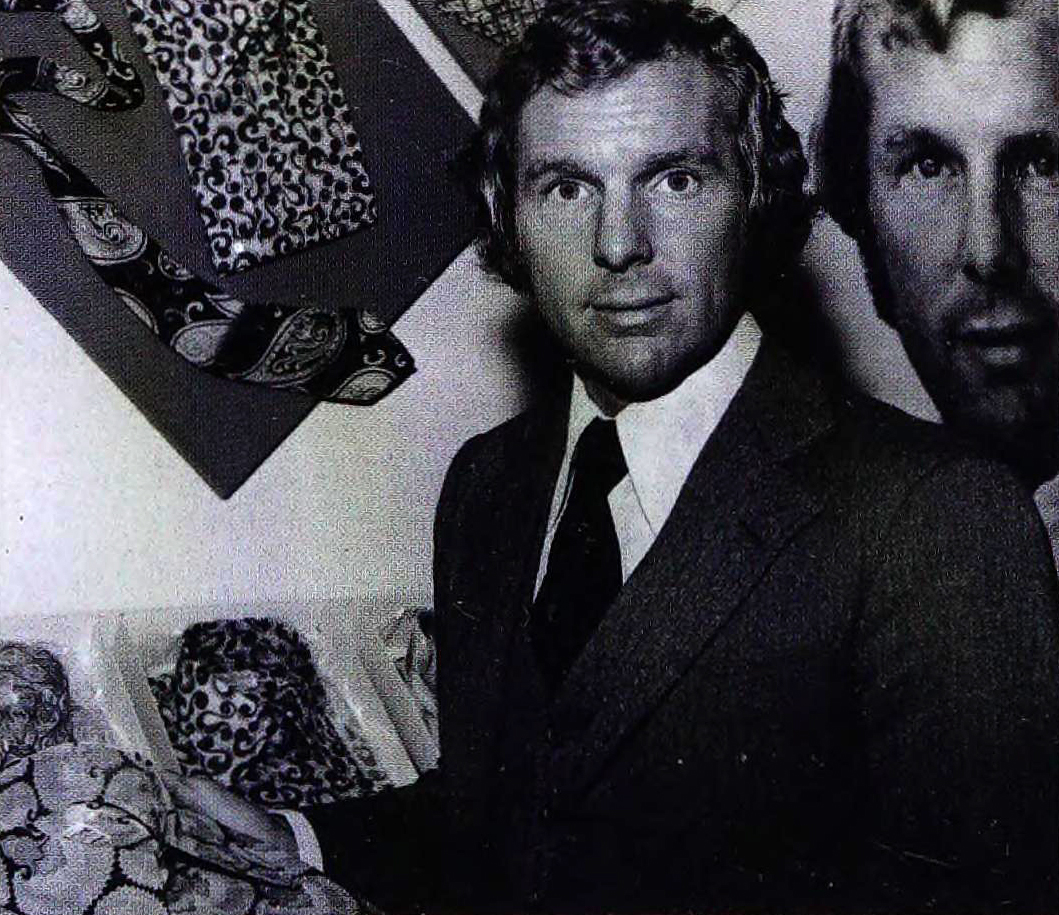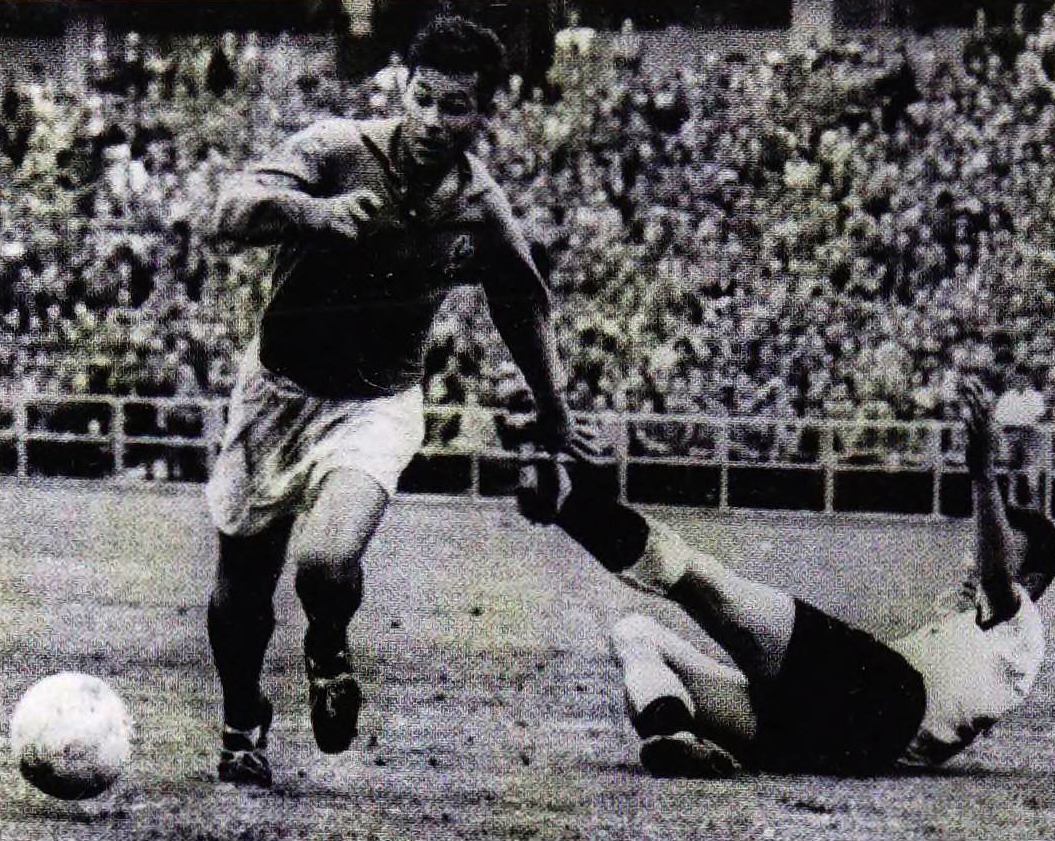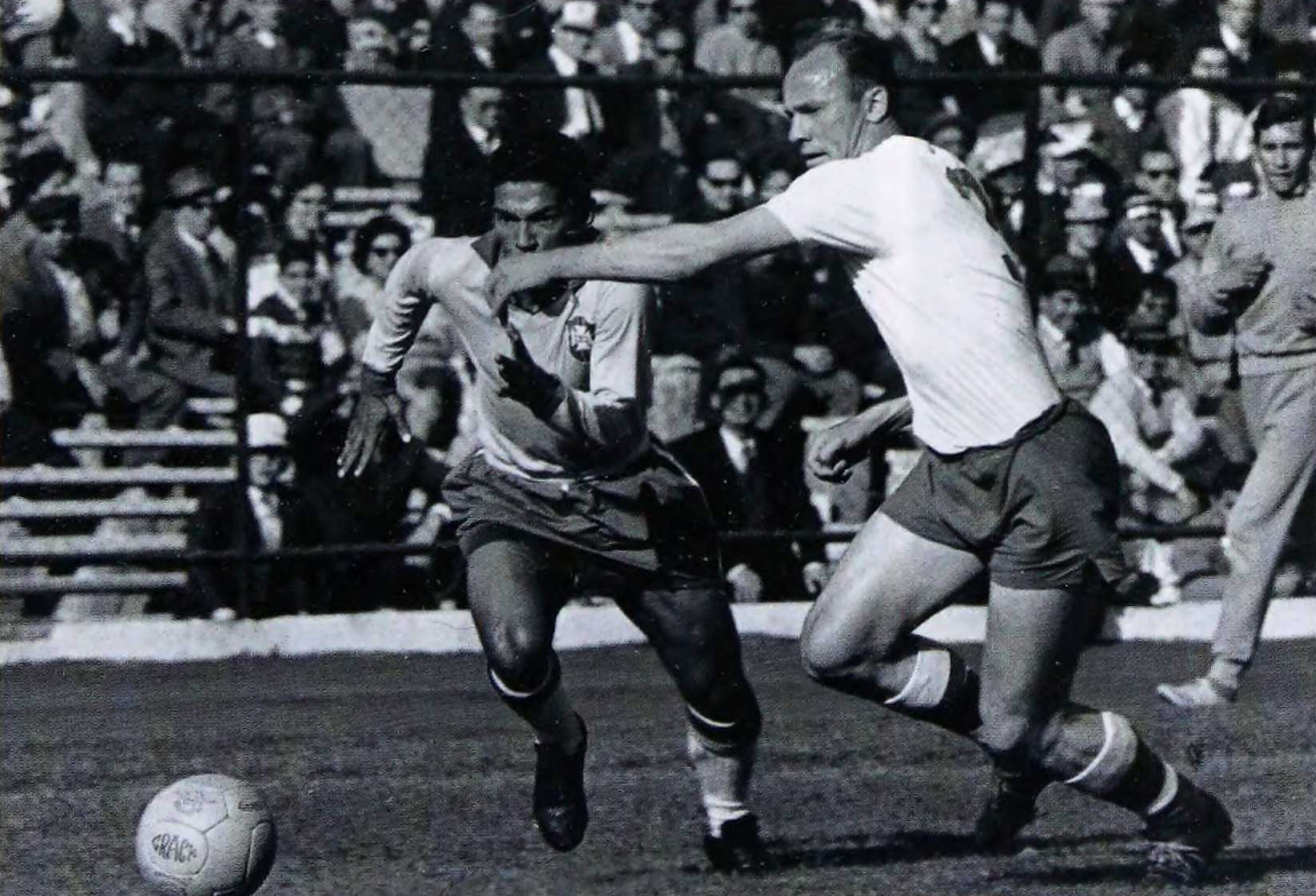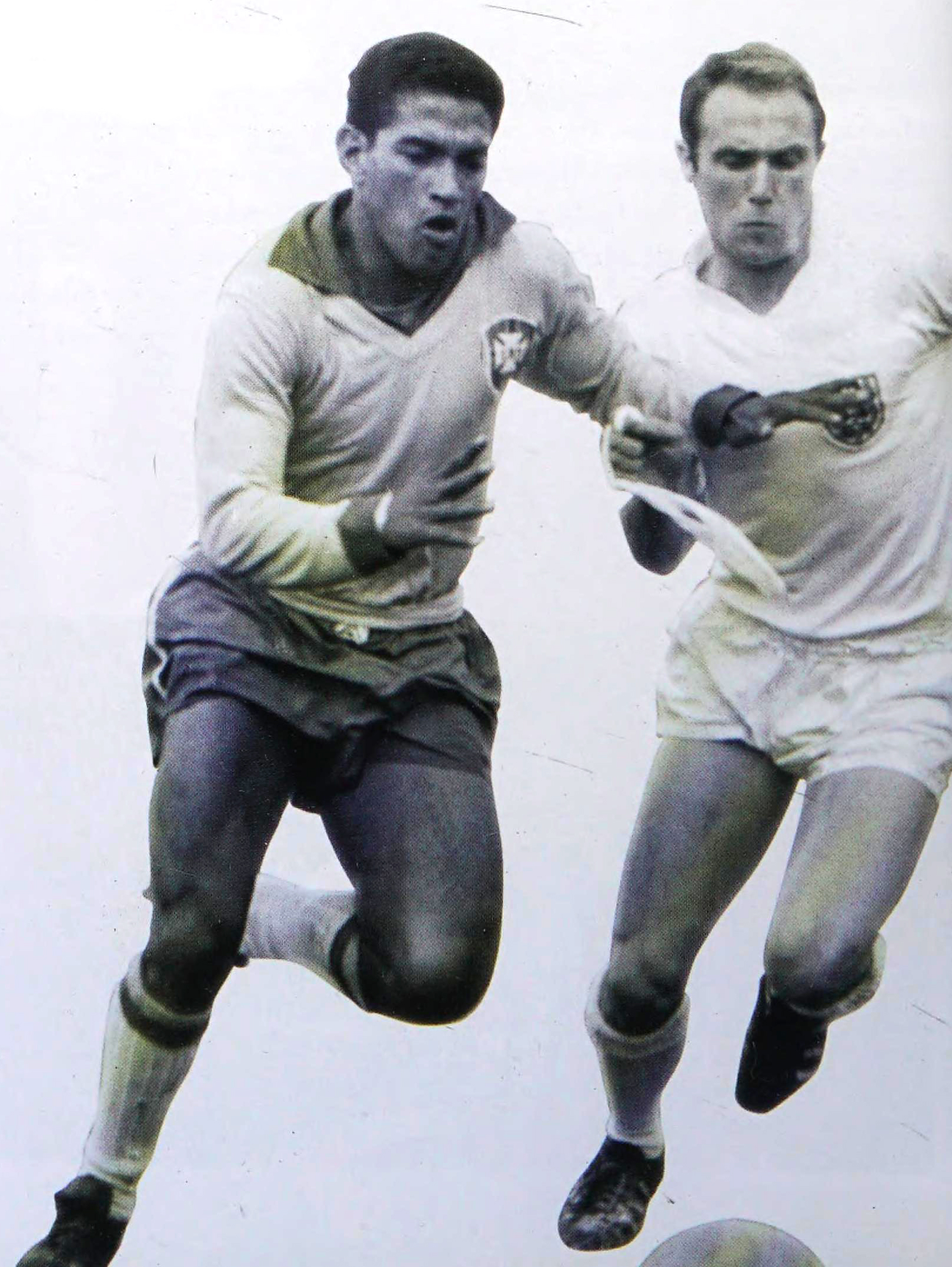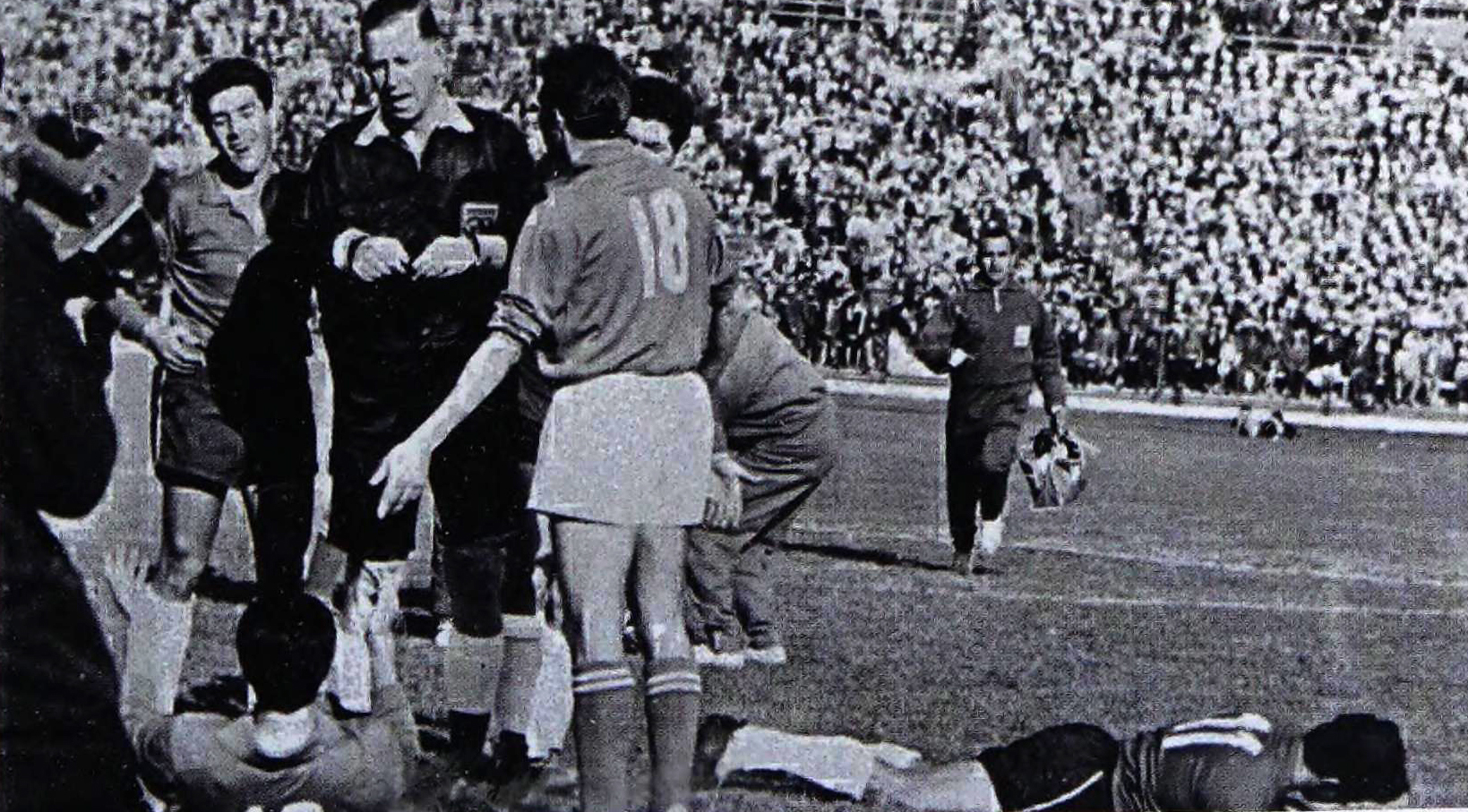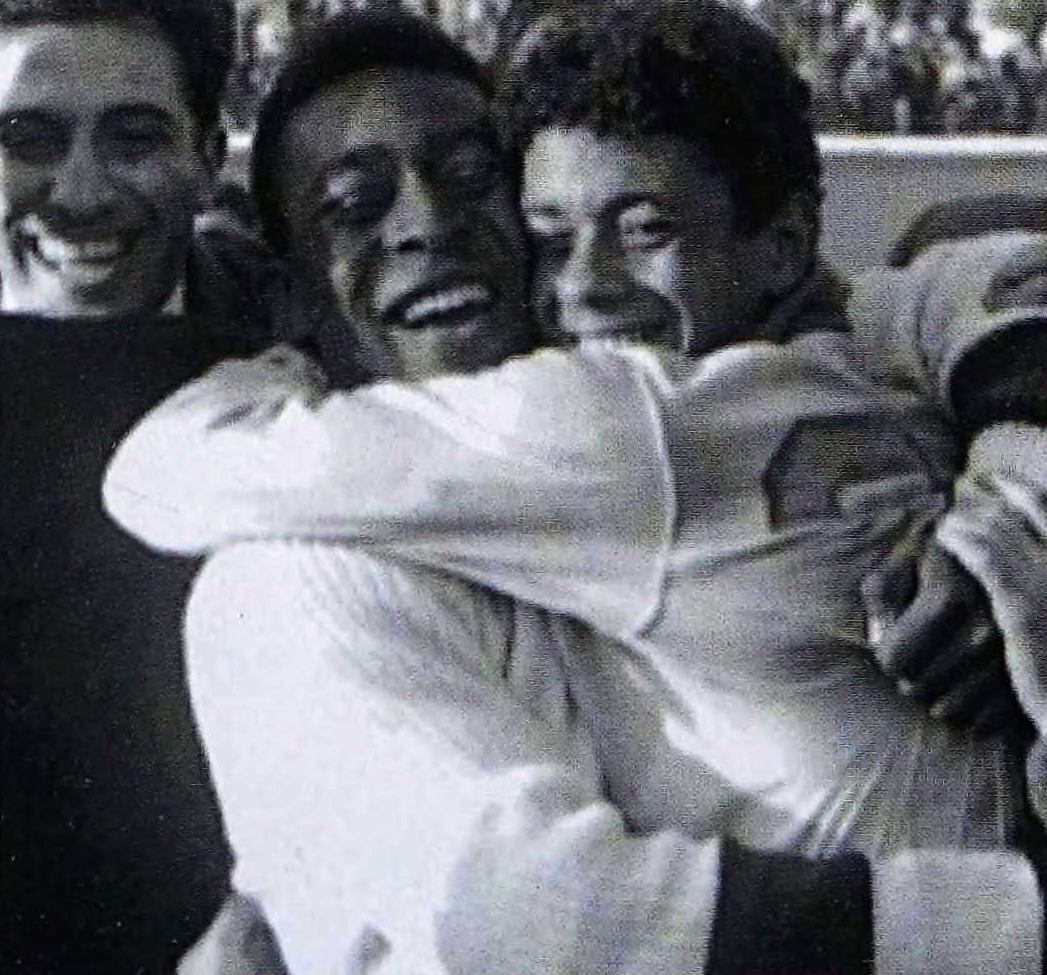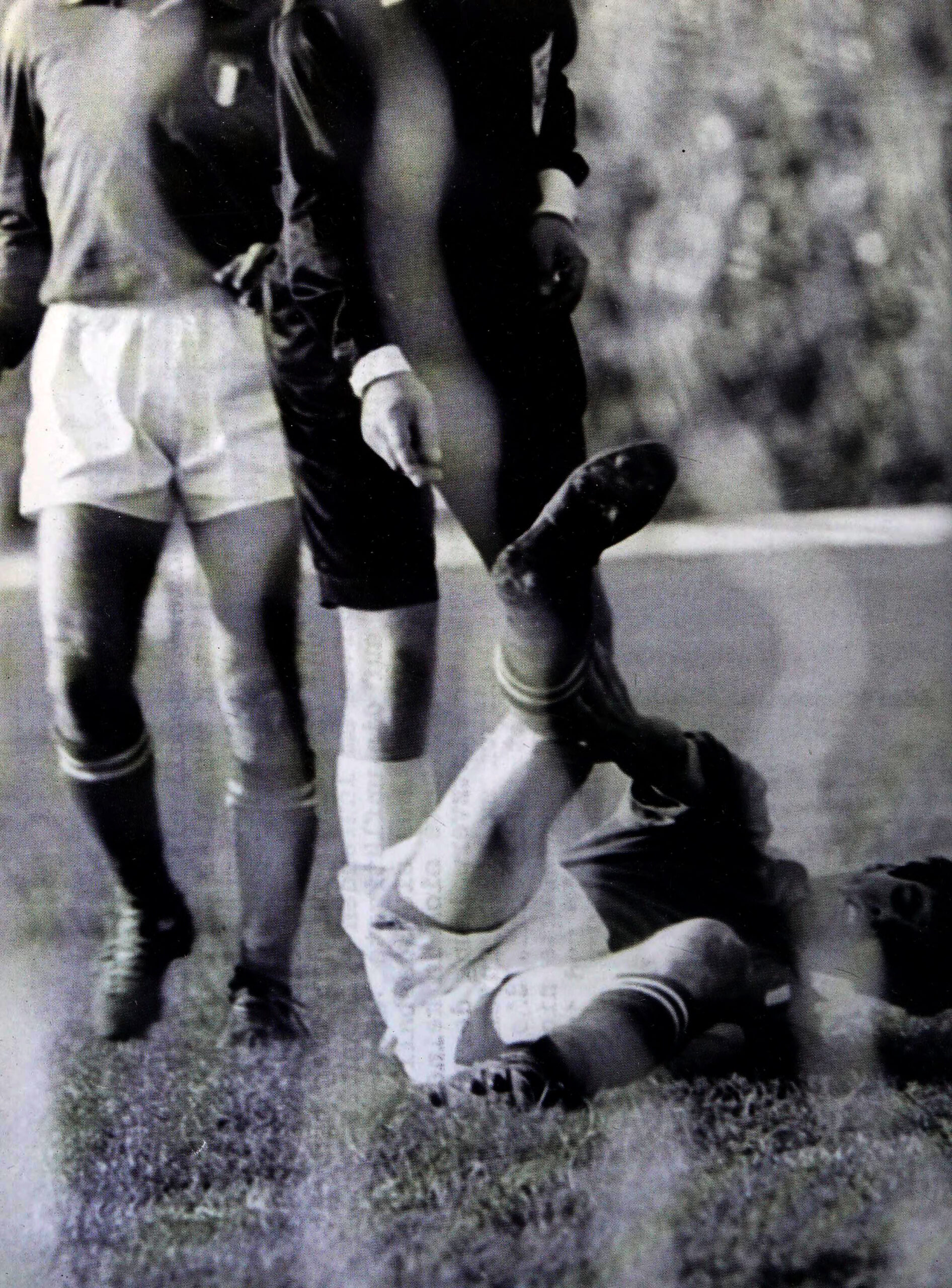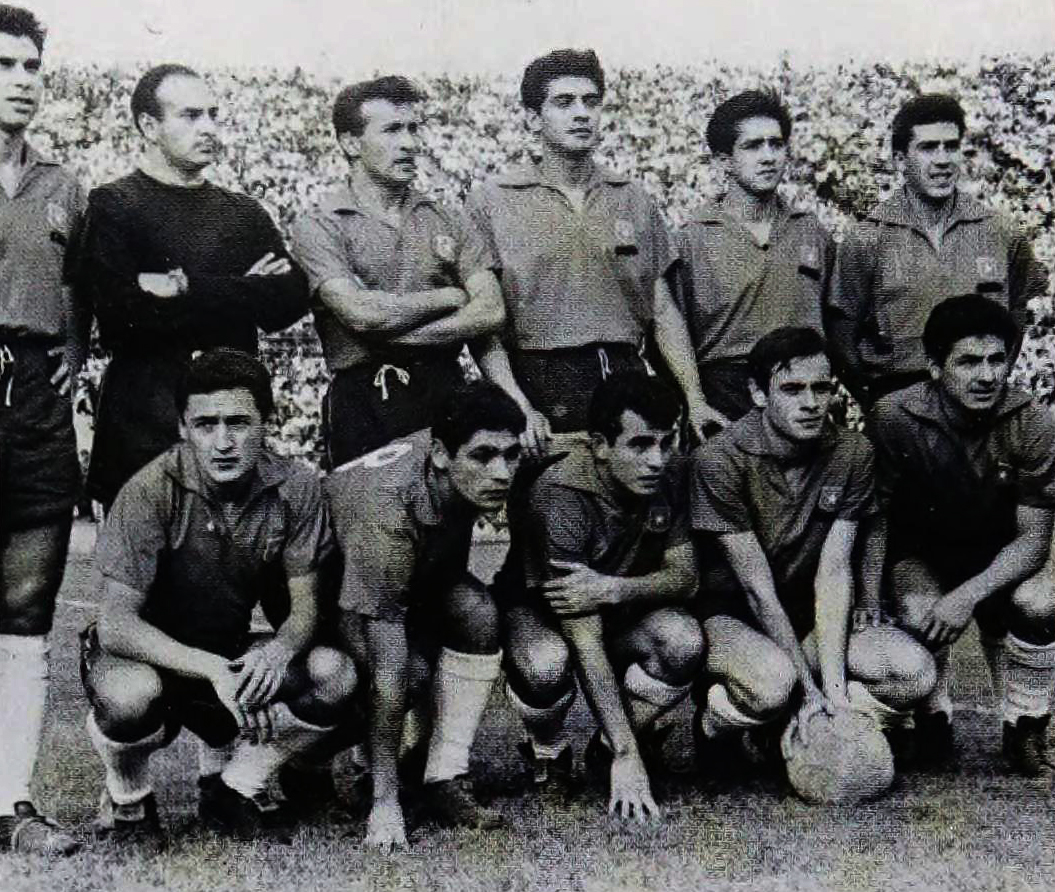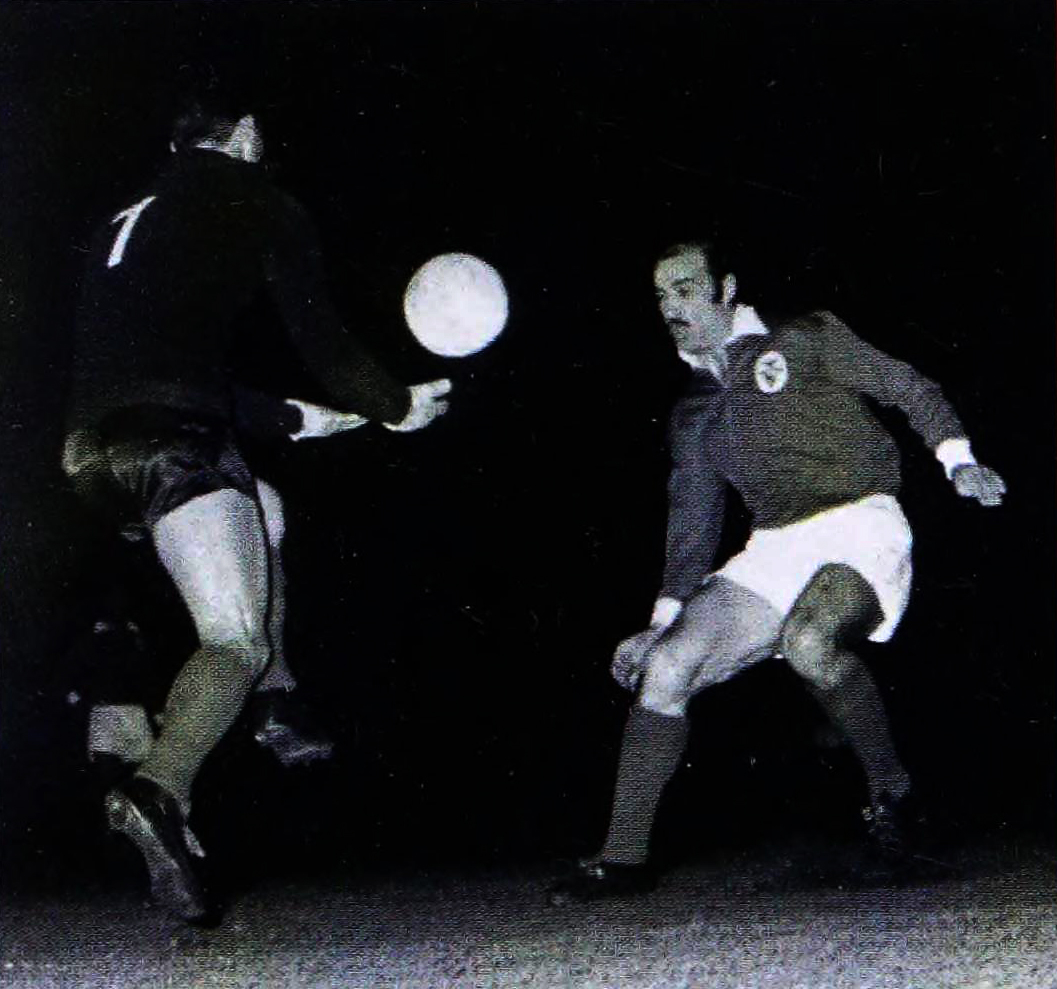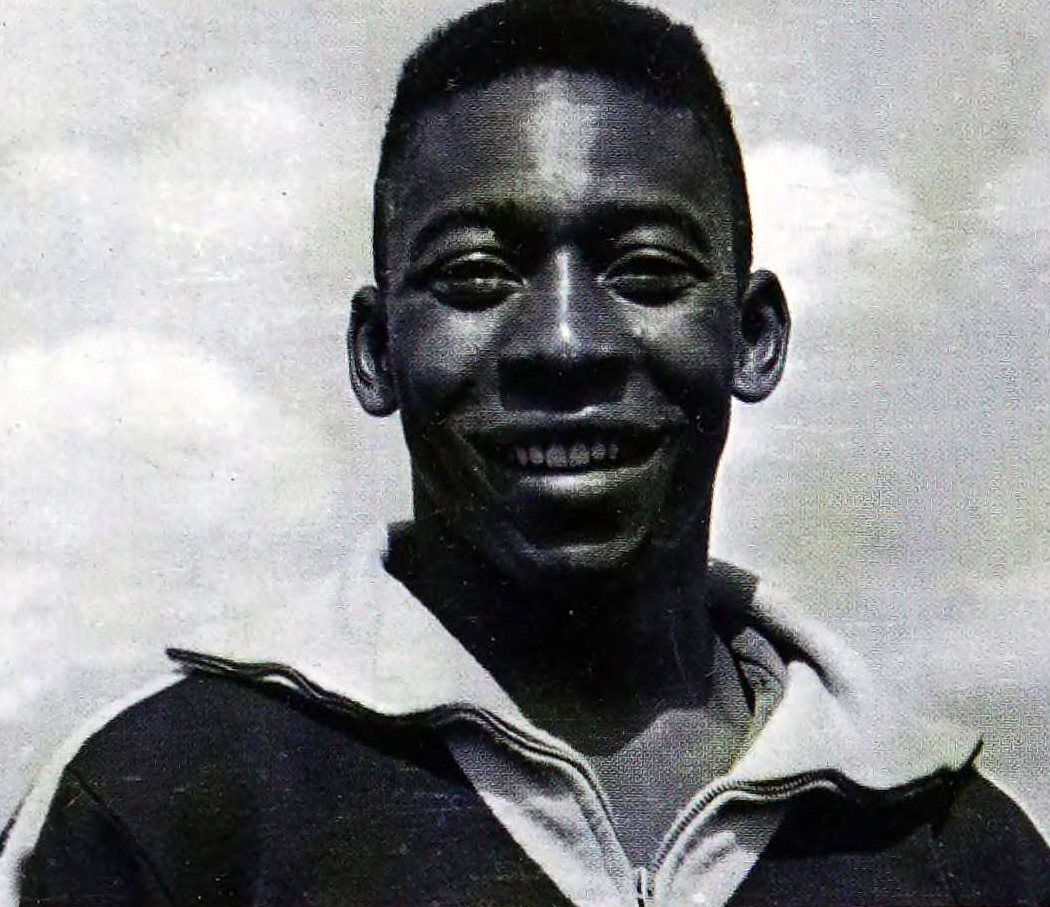Nr. 386
SPURS BECOME FIRST ENGLISH CLUB TO WIN IN EUROPE (1963)
In May 1963 Tottenham Hotspur became the first English side to claim a European trophy when they brushed aside Atletico Madrid 5-1 in the final of the European Cup Winners’ Cup in Rotterdam. The Spurs captain Danny Blanchflower, who needed painkilling injections in his knee before the game, gave a memorable and rousing speech in the dressing room. Lifted by his words, Tottenham took a 2-0 lead at half-time with goals from Jimmy Greaves and John White. The Spaniards cut the lead with a penalty from Enrique Collar, but the North Londoners pulled out of sight with a brace from Terry Dyson and another from Greaves.
Captain Danny Blanchflower lifts the European Cup Winners’ Cup aloft as he is carried shoulder-high by his jubilant Spurs team-mates.
